Don’t get us wrong: we love squirrels. We just don’t want them to crash the dinner party when we put a bird feeder out for our bird friends. Do you feel the same? Then read on to find out how to effectively squirrel proof your bird feeder so that it remains a “birds only” establishment.
How to Choose a Squirrel-Proof Bird Feeder
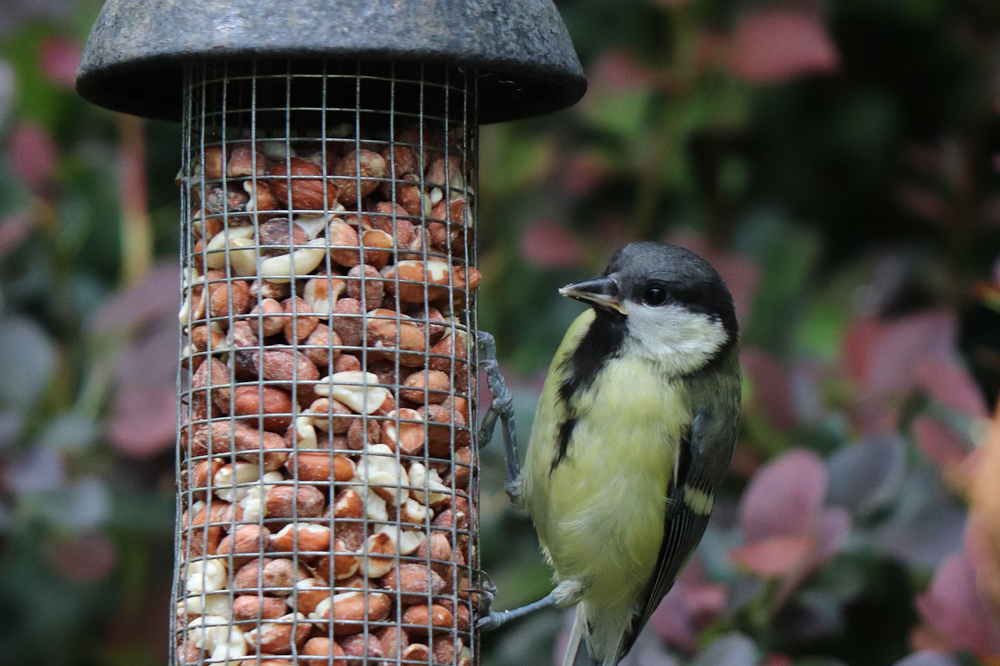
The first and most obvious place to start in this discussion is to choose the best bird feeders for the job: in this case, it would, of course, be squirrel proof bird feeders. With so many bird feeders for sale, it can get a bit overwhelming when it comes to choosing something that actually works. Here are some features to look for in a bird feeder:
Cages—A bird feeder with a steel cage screen, like our Brass Squirrel Proof Nut and Seed Feeder, will let the birds enjoy their meal while keeping the squirrels at bay.
Domes—Bird feeders with a dome cover, like the Seed Saver Domed Feeder, prevents access to the squirrels while allowing birds to perch and enjoy their seeds in peace.
Spring-operated perches—When birds alight on these bird feeders’ perches, they activate a door that opens to the seed compartment(s) that squirrels won’t be able to access when landing on the top of the feeder. Some spring-operated bird feeders we recommend are the 1st Bird’s Choice and the Absolute Combo, which can be mounted on a hanger or pole.
Where to Put Your Bird Feeder
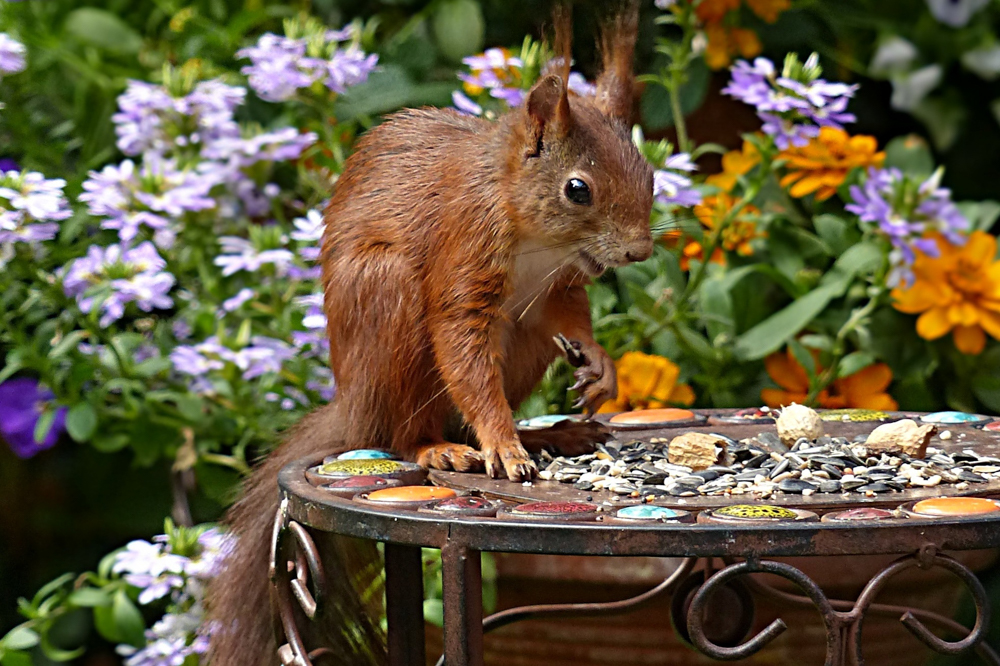
It makes sense to place a bird feeder where the birds are—or rather, where they like to be. Birds like a place in the sun where they are protected from the wind and have a clear view of the area so that they can keep an eye on potential predators. But birds aren’t the only ones you need to keep in mind when deciding on where to put your bird feeder.
Did you know that squirrels can jump up to four feet off the ground and about ten feet horizontally? These little gymnasts are determined to get your bird feed, so it’s important to place bird feeders out of reach. A good rule of thumb is to place your feeder at least six feet off the ground and twelve feet away from your house or any high surface from which squirrels can jump (such as a tree branch or fence post).
How to Hang Your Bird Feeder
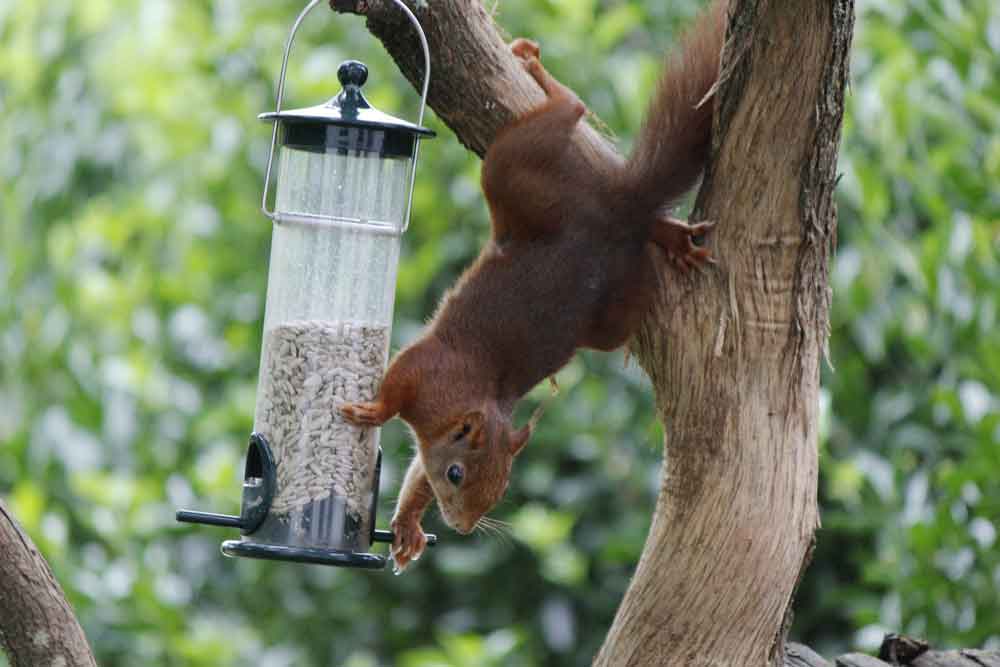
Since most bird feeders come standard with a built-in loop or hook, they can be hung from trees, garden hooks, poles, arches, rain gutters, or other places birds can easily see and access (and where you can view them from your house or deck). If the bird feeder isn’t squirrel-proof already, add a baffle to the top; this dome-shaped addition will prevent squirrel access. If the feeder is mounted on a pole or other object that a squirrel can climb, place another baffle underneath the feeder, with the dome facing the ground. This will block access to the feeder from both directions.
How to Choose the Right Food for Your Bird Feeder

A great way to keep squirrels from eating your seed? Change the menu! Squirrels don’t like safflower seed, nyjer seed, millet, or canola seed, while they are favorites of several bird varieties. If all else fails, some have found success in adding cayenne pepper to their bird food. Not only does it repel squirrels, but it doesn’t affect birds at all, and they will continue to enjoy eating their seed without incident.
How to Distract Squirrels from Your Feeder
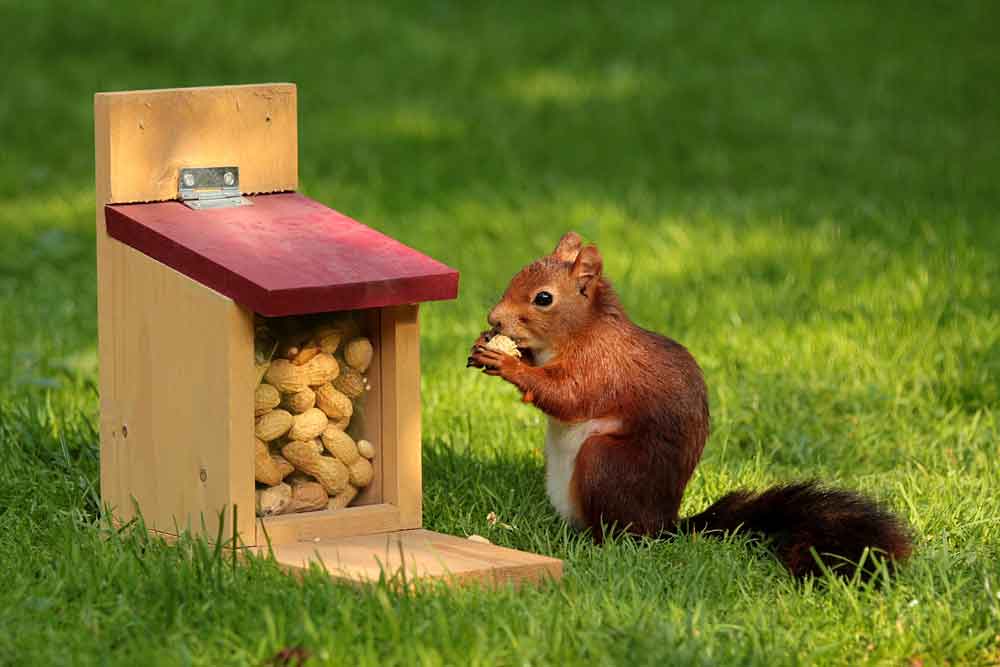
Why waste time-fighting off squirrels when you can simply divert their attention? Set up a “squirrel smorgasbord” away from your bird feeder with all the squirrel fixins: apples, oranges, apricots, dried corn-on-the-cob, walnuts, and mushrooms are among their favorites. They will be too distracted—and too full!—to mess with your bird feeders when they have their fill somewhere else!
Where to Access Other Bird Lover Resources
Shop squirrel-proof bird feeders.
Find the perfect birdwatching binoculars.
Check out our local birding activities, including talks by bird experts, bird walks, and more!
Learn about the benefits of birds.

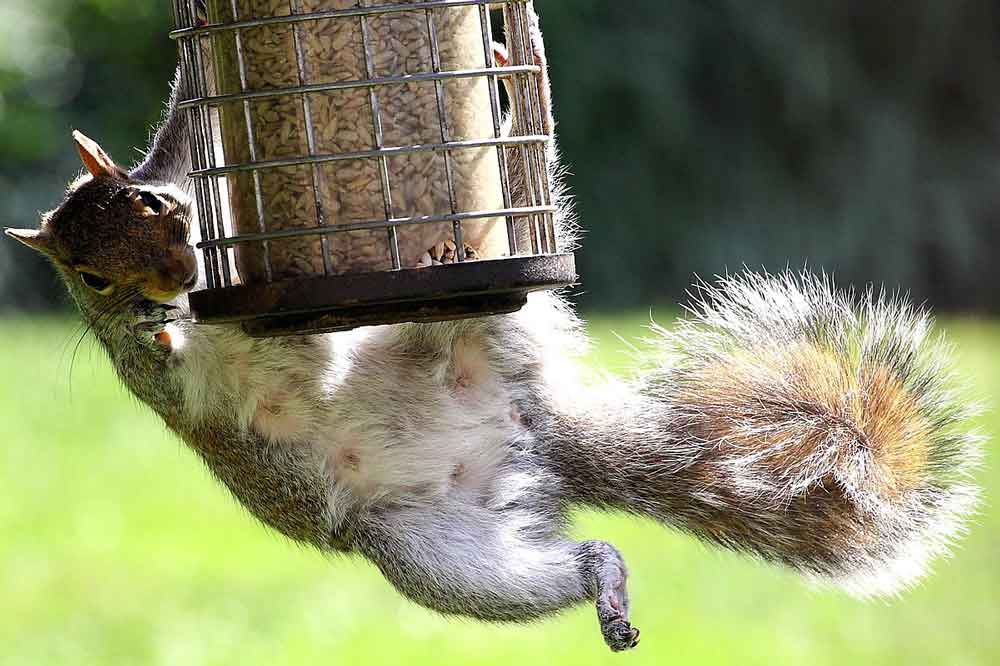

One comment
I think squirrels are very smart. I enjoyed your suggestions.